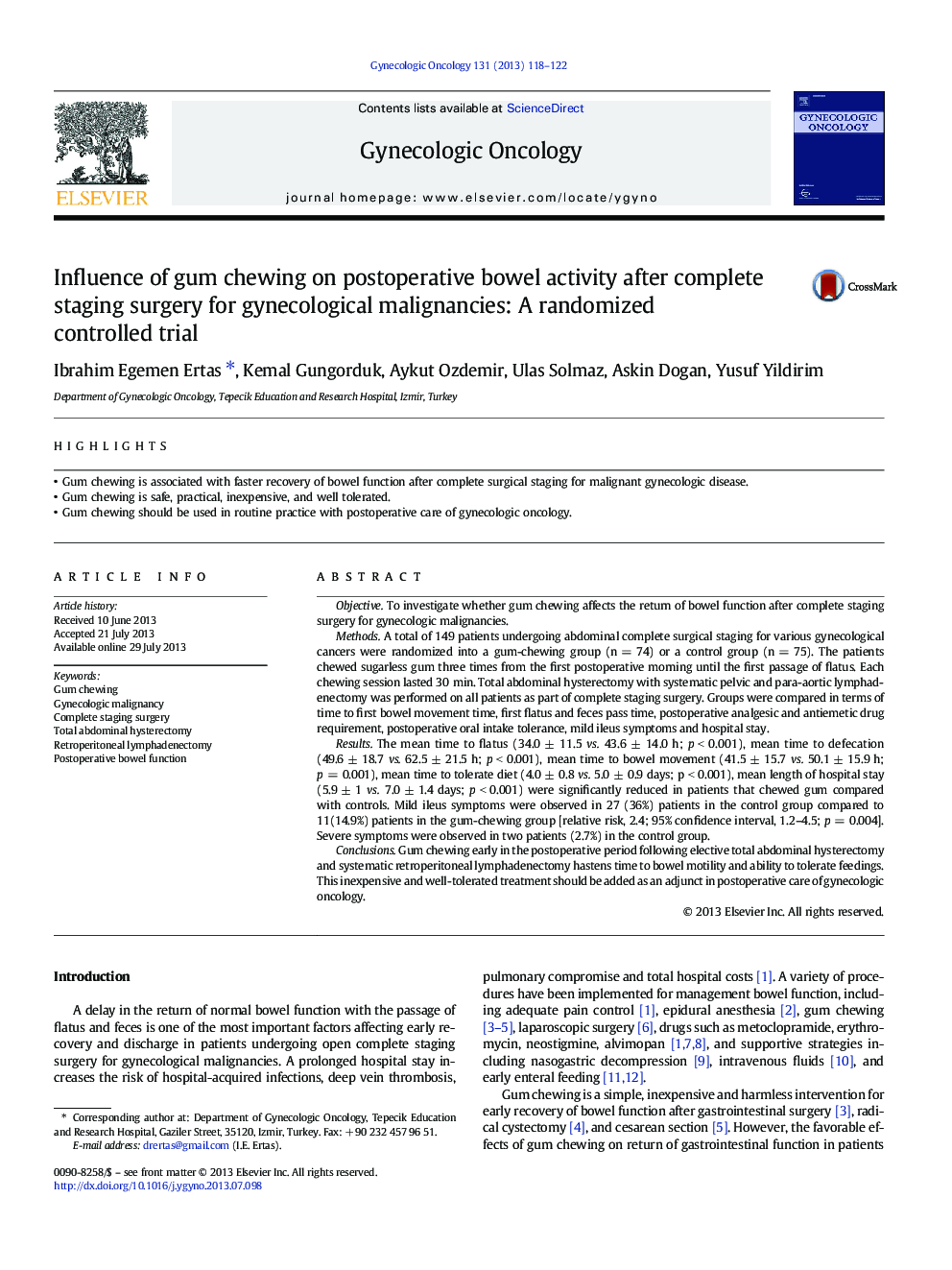| Article ID | Journal | Published Year | Pages | File Type |
|---|---|---|---|---|
| 6185231 | Gynecologic Oncology | 2013 | 5 Pages |
â¢Gum chewing is associated with faster recovery of bowel function after complete surgical staging for malignant gynecologic disease.â¢Gum chewing is safe, practical, inexpensive, and well tolerated.â¢Gum chewing should be used in routine practice with postoperative care of gynecologic oncology.
ObjectiveTo investigate whether gum chewing affects the return of bowel function after complete staging surgery for gynecologic malignancies.MethodsA total of 149 patients undergoing abdominal complete surgical staging for various gynecological cancers were randomized into a gum-chewing group (n = 74) or a control group (n = 75). The patients chewed sugarless gum three times from the first postoperative morning until the first passage of flatus. Each chewing session lasted 30 min. Total abdominal hysterectomy with systematic pelvic and para-aortic lymphadenectomy was performed on all patients as part of complete staging surgery. Groups were compared in terms of time to first bowel movement time, first flatus and feces pass time, postoperative analgesic and antiemetic drug requirement, postoperative oral intake tolerance, mild ileus symptoms and hospital stay.ResultsThe mean time to flatus (34.0 ± 11.5 vs. 43.6 ± 14.0 h; p < 0.001), mean time to defecation (49.6 ± 18.7 vs. 62.5 ± 21.5 h; p < 0.001), mean time to bowel movement (41.5 ± 15.7 vs. 50.1 ± 15.9 h; p = 0.001), mean time to tolerate diet (4.0 ± 0.8 vs. 5.0 ± 0.9 days; p < 0.001), mean length of hospital stay (5.9 ± 1 vs. 7.0 ± 1.4 days; p < 0.001) were significantly reduced in patients that chewed gum compared with controls. Mild ileus symptoms were observed in 27 (36%) patients in the control group compared to 11(14.9%) patients in the gum-chewing group [relative risk, 2.4; 95% confidence interval, 1.2-4.5; p = 0.004]. Severe symptoms were observed in two patients (2.7%) in the control group.ConclusionsGum chewing early in the postoperative period following elective total abdominal hysterectomy and systematic retroperitoneal lymphadenectomy hastens time to bowel motility and ability to tolerate feedings. This inexpensive and well-tolerated treatment should be added as an adjunct in postoperative care of gynecologic oncology.
